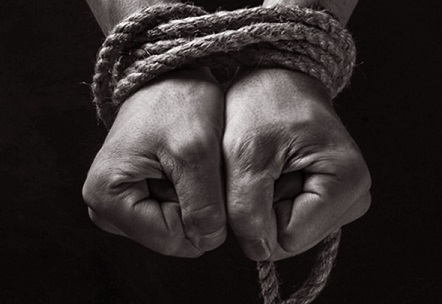US Department of State says Georgia fully meets standards against trafficking

The US Department of State reads in its 2018 Trafficking in Persons Report that the government of Georgia fully meets the minimum standards for the elimination of trafficking.
The government continued to demonstrate serious and sustained efforts during the reporting period; therefore Georgia remained on Tier 1,” the report says.
The US State Department believes that the government of Georgia demonstrated serious and sustained efforts by updating law enforcement guidelines for victim identification, including on the treatment of victims, screening for indicators at border posts, and victim-centered interview practices.
The government identified more victims and continued to provide comprehensive care. During the year, the government created and issued a grant for an NGO to organize awareness-raising activities in 10 cities and separately provided a new allocation to two NGOs to identify and support the reintegration of street children,” the report reads.
The US government says that although Georgia meets the minimum standards, victim identification remained inadequate for children in exploitative situations on the street and Georgian and foreign workers in vulnerable labor sectors.
As in previous years, the labor inspectorate operated with an unclear mandate, which inhibited inspectors’ ability to effectively investigate employers. No trafficking victims have ever received restitution from their traffickers and observers reported the government lacked public transparency, as it did not provide public assessments of its own anti-trafficking efforts,” the report states.
The recommendations in the report are as follows:
- Georgia should improve efforts to proactively identify trafficking victims, particularly street children and Georgian and foreign victims in vulnerable labor sectors.
- Further incorporate the labor inspectorate in anti-trafficking efforts with a clear mandate that establishes roles and responsibilities and enables unannounced inspections of employers.
- Vigorously investigate, prosecute, and convict traffickers under article 143.
- Increase law enforcement capacity to investigate complex cases, including advanced training for money laundering, organized crime, and digital evidence.
- Improve measures to guarantee victims’ access to compensation, including asset seizure, informing victims of their rights to compensation, and legal assistance; increase transparency of the inter-ministerial trafficking coordination council and provide public assessments.
- Fully implement the law that provides street children with free government identification.
- Create interagency strategies for reducing vulnerability and countering forced begging.
- Provide awareness-raising campaigns about the existence of human trafficking, legal recourse, and available protection services to vulnerable groups.
 Tweet
Tweet  Share
Share